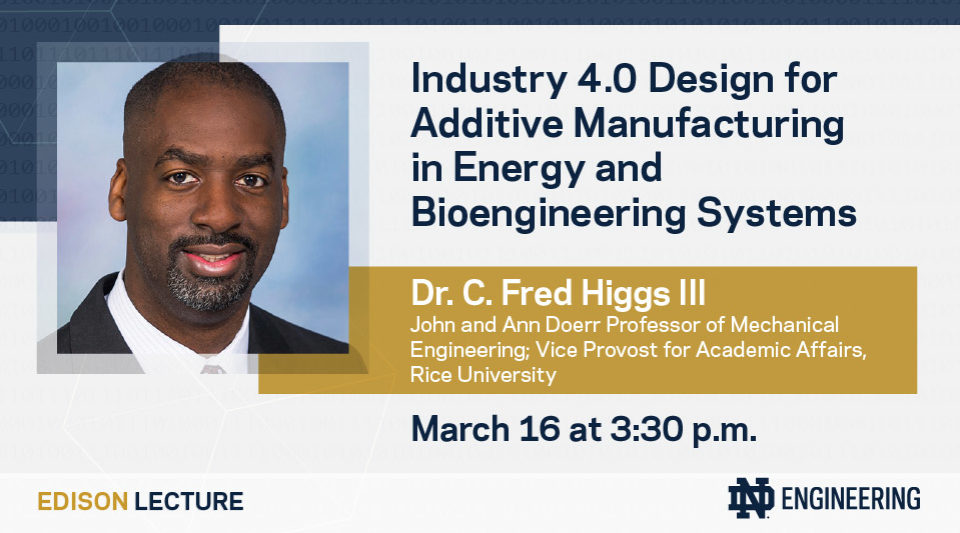C. Fred Higgs III will deliver a Notre Dame Engineering Edison Lecture, “Industry 4.0 Design for Additive Manufacturing in Energy and Bioengineering Systems,” on March 16 at 3:30 p.m. EST.
This virtual presentation is free and open to the public.
Dr. Higgs is the John & Ann Doerr Professor of Mechanical Engineering at Rice University, where he is also the Vice Provost for Academic Affairs. He is also a Joint Professor with the Bioengineering Department and the Faculty Director of the Rice Center for Engineering Leadership (RCEL).
Dr. Higgs is a Fellow of the American Society of Mechanical Engineers (ASME). His Particle Flow & Tribology Laboratory conducts coordinated high-performance computing and high-fidelity experimentation to predict the behavior of applications with particle media in sliding contacts (tribology), such as additive manufacturing (3D printing).
About this talk
As described by the World Economic Forum, the first Industrial Revolution used water and steam power to mechanize production. The second created electrical mass production. The third used electronics and IT to automate production systems.
A fourth Industrial Revolution blurs the lines among the physical, digital, and biological spheres. This new era is ushering in Industry 4.0 and the next-generation factory, with internet-connected autonomous systems that are completely digitalized to produce data-driven personalized products. Among the key engineering applications that form the technological foundation of Industry 4.0 are big data, the Internet of Things, and additive manufacturing.
Dr. Higgs will describe, through an Industry 4.0 lens, the work his engineering lab is doing to advance additive manufacturing technologies.
This event will be moderated by David Go, Rooney Family Collegiate Professor and Chair, Aerospace and Mechanical Engineering, and will include a welcome from Patricia J. Culligan, Matthew H. McCloskey Dean, Notre Dame College of Engineering.
The Edison Lecture Series was established in 1989 by the Charles Edison Fund with the goal of stimulating interest in and encouraging participation in science and technology.
